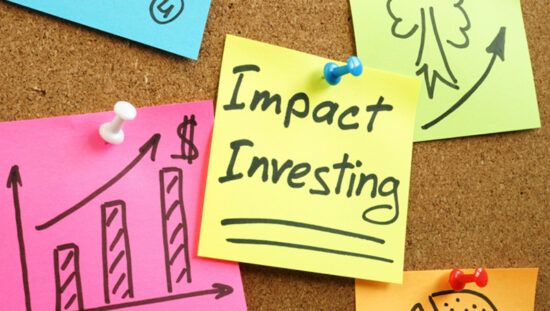For all the downside that the COVID-19 pandemic has unleashed on the global financial markets, a fast-growing subcategory of the asset management industry is seeing an opportunity for upside.
Sustainable investing strategies that focus in varying degrees on environmental, social and governance issues have emerged as the darlings of the financial markets since the start of the year, while traditional strategies and broad market indexes have been wildly whipsawed.
During the first quarter of the year, for example, when the S&P 500 Index was knocked off its decade-long bull market perch into bear market territory with a 23.7% decline, funds earning the highest ESG ratings by Morningstar averaged declines of 17.7%.
While some skeptics of the standout performance point to the lack of fossil fuel exposure, which is typical in the sustainable space, as the reason for the success, that misses a larger point, according to Martin Jarzebowski, director of responsible investing at Federated Hermes.
“Energy is just one component of the story,” he said during a webinar Wednesday that analyzed the growing appeal and performance of ESG strategies.
In January, leading into the early stages of the coronavirus pandemic, energy represented just 4% of the S&P 500, and has since fallen to about 3%, Jarzebowski said, underscoring the limited impact that simply avoiding the beaten down energy sector would have on a diversified portfolio.
“What we’re starting to see is a greater correlation of ESG leaders having lower volatility and a greater propensity for profitability,” he said. “What people have forgotten is that ESG strategies also outperformed in the downturn during the fourth quarter of 2018.”
The point that Jarzebowski and others on the panel were driving home is that ESG strategies are passing live-fire market tests and emerging as new measures of quality.
“It is surprising to some people that doing good is doing well from an investment perspective,” he said. “As we move forward, an additional framework is that if ESG has a higher quality you should start treating it like traditional fundamental factors.”
Not only have ESG strategies sailed through the start of the year relatively unscathed, some of the realities of the pandemic are leading to even more awareness of sustainable investing.
Citing the lockdowns across the globe that has ground most business and leisure travel to a halt, Marc-Olivier Buffle, senior product specialist at Pictet Asset Management, said people are realizing a newfound appreciation for smog-free views.
“Without as many airplanes in the sky and cars on the road, the air quality is improving, and you can see the mountains now,” he said. “Milan is now closing some roads in the center of the city because they have realized there is increased mortality in those parts of the city where the air quality is poor. This is a good example of a mega trend moving in that direction.”
The panel agreed that the strength of ESG strategies during the COVID-19 crisis will carry momentum beyond this period, there was also an acknowledgement that ESG still has a ways to go in terms of developing unified definitions and more measurable characteristics.
“Everyone wears different lenses, and impactful doesn’t mean the same thing to everyone,” said Jennifer Tonda, director of institutional trading at 280 CapMarkets.
Jarzebowski also cited the “limitations of third-party rating agencies, and the construction of indexes,” which is why he believes the “future ESG 3.0 is having inhouse stewardship capabilities.”
Laurie Kamhi, managing director and partner at LCK Wealth Management, sees ESG investing at a “big inflection point, economically speaking, and I think we need a new social contract.”
“This is one of those times where it will flow through hopefully from great leadership,” she added. “It’s also bottom-up if you look at the millennials who have been through two or three tremendous upheavals, and that’s why they will be one of the drivers.”
Jarzebowski added that ESG momentum will continue because “people are starting to understand that taking structural ESG considerations into an investing framework is a new form of investing.”
“ESG is simply a natural extension of sound primary research,” he said. “When we reconvene in 10 years’ time, we’ll just be calling it appropriate investment practices.”








